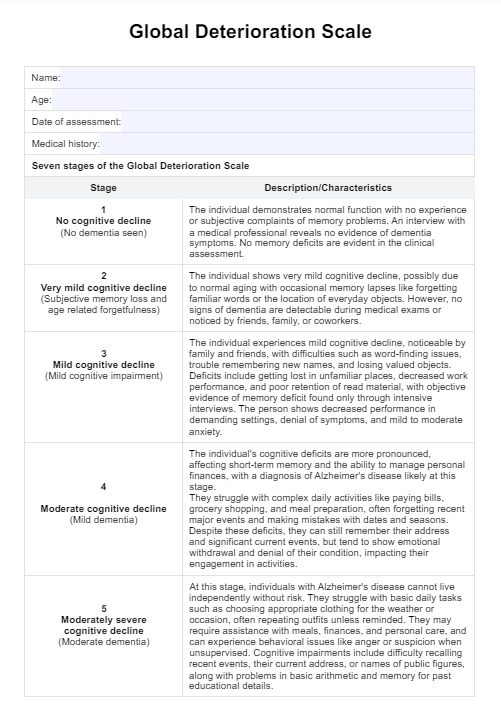The Geriatric Depression Scale is a self-report measure used to assess depression in older adults. It consists of a series of yes/no questions that evaluate depressive symptoms over the past week.

Geriatic Depression Scale
Use the Geriatric Depression Scale (GDS) for detecting depression in older adults. Access a free PDF template here.
Geriatic Depression Scale Template
Commonly asked questions
It is designed to detect depression in elderly individuals, who may experience depression differently than younger people. It is used to screen for depressive symptoms, determine the severity of depression, and identify individuals who may benefit from further evaluation or treatment for depression.
The Geriatric Depression Scale offers several advantages over other depression scales. It is a self-report measure that comes in both a 30-item long form and a 15-item short form, making it adaptable to different settings and patient needs. The GDS is designed to be easy to administer and interpret, taking approximately 5 to 7 minutes to complete, which is ideal for individuals who may be fatigued or have difficulty concentrating for extended periods.
EHR and practice management software
Get started for free
*No credit card required
Free
$0/usd
Unlimited clients
Telehealth
1GB of storage
Client portal text
Automated billing and online payments











